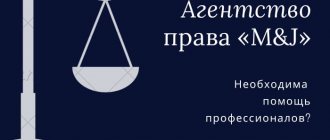Mandatory share in inheritance
Inheritance means movable and immovable property, which is subject to the right of ownership to the testator. This means that during his lifetime he had the full right to own, use, and dispose of property. Upon the death of the testator, he transfers all his rights.
The compulsory share in the inheritance (OA) is understood as a part of the property that must necessarily go to a separate, specifically formed group of persons if the testator has drawn up a will.
The concept of OA in inheritance is understood as a restriction that is imposed on the testator. The rights of certain categories of citizens are protected, which must be ensured by the testator . When the will was simply not drawn up initially, the testator's movable or immovable property is inherited in accordance with Civil Code Article 1142 in turn.
But if the will has been formulated and executed, then the property can be received not only by those persons who are mentioned in the text in accordance with Article 1149 of the Civil Code.
Read more about inheritance by law and the order of inheritance of a share under a will here.
What is it made of?
The OA is compiled from the property that belongs to the testator.
This share cannot include property that belongs to another person by right of ownership, as well as property that does not have the opportunity to participate in civil circulation.
If the testator draws up a will, the notary is obliged to warn him in advance about from what property the OA will be calculated.
As a rule, all property is transferred, a set amount is allocated, which goes to the direct heirs, and the rest of the inheritance can be distributed among the citizens whom the testator wants to see as heirs. Read more about how shares in an inheritance are distributed according to law and will in this material.
What is the mandatory share paid from?
The payment of part of the inheritance comes from property that is not specified in the will, but belongs to the testator. If there is no such property, then the compulsory share is allocated from the bequeathed property.
Example. The heirs of the deceased R. are his wife and young child. Each of them is entitled to ½ of the property (2-room apartment). The marital share rule does not apply - the property belonged to the deceased citizen. When submitting the documents, the notary became aware of the existence of a will. The testator assigned part of the property (land share) to his brother, who was engaged in agriculture. The interests of a young child were not taken into account in the will. Because at the time of its compilation the baby had not yet been born. The heirs turned to the notary. The wife took a share in the apartment. From it, the child was allocated a mandatory share of the inheritance. The brother inherited the land share.
Who is eligible?
If you are interested in the first two paragraphs of the article, now you can directly familiarize yourself with the list of persons who have the right to dispose of and receive ML. First of all, such categories include children of a citizen under 18 who is a testator, unemployed spouses and parents . At the same time, the rule applies not only to natural children, spouse and parents, but also to adopted persons. Disabled adoptive parents can also count on receiving ML, Article 149 of the Civil Code.
There are other categories of disabled people who are entitled to a share . Article 1148 of the Civil Code speaks about this possibility.
Dependents can be divided into 2 categories. The first includes those heirs who are heirs. These persons are disabled, and therefore were dependent on this person. In this situation, it does not matter whether these persons lived together with the deceased or lived separately.
The second group of citizens includes those dependents who are not recipients and were registered with the deceased person for at least 1 year or lived together.
All these persons have the right to OA from the general inheritance mass, if they were not mentioned in the will. This is evidenced by paragraph 32 of the resolution of the Plenum of the Supreme Court of May 29, 2012.
But, despite the fact that the law protects the above categories of citizens, it does not relieve them of the obligation to perform actions that must be carried out by persons accepting an inheritance. They must reimburse expenses associated with the death, and must also be liable for debts, if any, on the property in accordance with Articles 1174-1175 of the Civil Code.
What about retirees?
If pensioners were dependent on a deceased person for more than one year, they can receive a share . The size of the inheritance received is established by the notary depending on the current situation and the total inheritance mass.
Pensioners have the right to count on part of the inheritance, but only if they prove the fact of cohabitation, as well as the fact of being a dependent.
Is there a mandatory share without a will?
The rule on the obligatory share of property is valid only in the presence of an administrative document. If the testator did not leave a will, then inheritance of property occurs within the framework of the law. Parents, children, official spouse and dependents belong to the 1st line of heirs.
Funds are divided equally between applicants. As for the disabled dependents of the testator, such persons inherit property on an equal basis with other applicants of the corresponding priority (Article 1148 of the Civil Code of the Russian Federation).
Size and composition
Within the framework of the topic under consideration, we cannot ignore the issue of the size of the OA. As a rule, it is at least 1/2 of what the heir could receive if he inherited the property.
In order to find out the hereditary share, it is necessary to carry out a number of preparatory actions.
Thus, to determine OA, it is necessary to establish the share that could legally belong to the heir.
At the same time, it is necessary to take into account all the heirs of the deceased, who are such in accordance with the legislation of our country. These persons must be alive at the time of opening of the inheritance, that is, six months after the death of the testator.
If a dispute about an inheritance has gone to court, then the court reserves the right, when considering the case, to reduce or increase the amount of OA, or even refuse to accrue at all under individual circumstances.
Calculation examples
As you may have noticed from the above paragraph, the size of the share that the heir can claim will be exactly half of the amount that he could receive in relation to his immediate relatives. That is, he could receive 30,000 rubles, but was not mentioned in the will, then when calculating the OA, he could receive 15,000 rubles, that is, 50% of the possible amount.
Let's look at another, no less illustrative example. According to Sidorov’s will, it turned out that he ordered the transfer of his property in the form of a house to one of his sons, who were minors at the time of death. They were his heirs. The son who was not indicated by the testator in the document has full right to OA. That is, he will own 1/4 of the house, and if the inheritance were divided according to the law, the children would receive half of the property.
Ways to reduce
The legislation of the Russian Federation provides for the possibility of reducing the share. However, this can only be done by court decision (1149 Civil Code) . When carrying out such an action, factors such as the person’s finances will be taken into account, as well as the need or lack of need to receive the share in full.
The above rule is fair, since the very fact that legislation assigns a compulsory share is a way of protecting the rights and interests of those individuals who, for some reason or circumstance, cannot provide themselves with a financial livelihood.
If a person whose income has been significantly reduced does not agree with such a court decision, he can appeal to higher authorities, that is, to the arbitration court with a corresponding application. However, this can be done within 10 days after the court decision.
Valuation of inherited property
When registering an inheritance, one of the basic conditions is an assessment. Based on it, the notary makes calculations of the amount of state duty that applicants for property must pay.
At the same time, a report on the value of assets will allow you to determine the size of the share of the obligatory heir in monetary terms. You can order an assessment from a private or public institution.
The only condition is the availability of a license for a specific type of property (cars, real estate, securities).
It is better to order an extract on the cadastral value of a property from the territorial office of Rosreestr. You can fill out an application for it online.
If necessary, you can use an inventory valuation of property. It can be ordered from BTI.
For other types of property, appraisals are carried out by independent companies. The cost of services depends on the type of property.
Refusal to award
If for some reason the heir who is mentioned in the will cannot receive property that he had the opportunity to use during the life of the testator, or received income from interacting with them, and the obligatory heir in the meantime did not use these things, then the court has the right refuse the award.
This verdict is made only taking into account individual circumstances , as well as taking into account the financial situation of the parties and the possibility of financial security. At the request of one of the parties, without the presence of such circumstances of the case, the court is not competent to make such a decision.
The heir himself can also make a voluntary refusal, but he does not have the right to dispose of the share and alienate it.
Is it possible to renounce?
Heirs can refuse OA; moreover, no one can infringe upon them in such a right. The failure must be recorded accordingly.
Therefore, it is better for the heir to carry out the refusal either in court or in some way formalize it with a notary so that such a will has legal force.
How to do it?
To cancel you must meet the deadline. Thus, a waiver of a share can be made only within 6 months after the inheritance was opened. This means that one year after the death of the testator, you will no longer be able to refuse the share due to you.
The second reason that you should familiarize yourself with is that you cannot refuse in favor of any person, but you can refuse an inheritance in principle without any problems. The refusal is not formalized; you simply do not enter into inheritance rights. Similar requirements are enshrined in Article 1158 of the Civil Code.
That is, in order to renounce a share, you simply need to refuse to sign when reading the will, which means to enter into legal rights.
Read more about how to formalize a waiver of part of an inheritance here.
Procedure for registration of inheritance
There are no significant differences for mandatory heirs.
Procedure for accepting inheritance:
- Citizens must contact a notary office.
- The papers are submitted at the place of residence of the testator.
- You must declare your rights within 6 months .
- The countdown begins from the day of the citizen's death.
Documents for registration of inheritance
Not all documents can be submitted to the obligatory heir, since the inheritance case is opened upon the application of the applicant under the will.
The package of documents must contain:
- civil passport of the obligatory heir;
- birth certificate of the minor recipient;
- marriage certificate (for the spouse);
- birth certificate of the deceased owner (for his parents);
- documents on disability (if available);
- court decision on recognition as a dependent (if any);
- an extract from the house register (to prove cohabitation for dependents who are not relatives);
- court decision to collect alimony from the deceased (if any);
- agreement on payment of alimony (if any);
- receipt for payment of notary services.
State duty
The Tax Code provides for only 2 rates when registering an inheritance. Their size depends on the degree of relationship and the value of assets:
- Close relatives of the deceased subject pay 0.3%. This includes children, parents, spouse. Additionally, family members include brothers and sisters of the deceased citizen. The maximum tax amount is 100,000 rubles.
- Other relatives or beneficiaries pay 0.6%. The maximum tax amount for this category of heirs is 1,000,000 rubles.
The law provides for the possibility of full or partial exemption from payment of state duty.
Reasons for exemption from payment
| No. | Grounds for release |
| 1 | Minors or incapacitated heirs are completely exempt from paying tax |
| 2 | Disabled people of groups 1–2 receive a 50% relaxation |
| 3 | Persons who inherit a deposit are completely exempt from state duty |
| 4 | Dependents living with the deceased for at least 1 year also do not pay the fee. |
The fee amount is calculated based on the assessed value of the property. However, the law does not provide for the possibility of exemption from payments for notary services. Therefore, mandatory heirs are required to pay a fee for issuing a certificate.
Allocation of part of the property
The allocation of OA is carried out either by a notary or by a court . Moreover, if the testator’s property is of a versatile nature, that is, it contains immovable property, money, and objects, then in order not to divide the parts, everything is converted into a monetary equivalent.
In accordance with the cost that covers the cost of the share, the amount that should be transferred to the person receiving the OA is determined. Everything that a person who is an heir can receive as an inheritance can be counted in the OA.
The allocation of a share may be accompanied by such actions as an examination or cadastral valuation.
These actions are necessary when it comes to movable and immovable property that has no value, but it needs to be determined.
For example, if we are talking about a car, he orders an expert assessment of the value, and the result of the examination is attached to the will.
The same applies to real estate in the form of apartments and houses. If we are talking about the transfer of land, then cadastral engineers are called , who determine the cadastral value. Read more about the features of inheriting a share in a privatized apartment or house here.
Market value in this situation has no weight or meaning.
If we are talking about small items, then either an expert or the heir himself can stop their value by indicating the average market value depending on the condition of the item.
What does obligatory share mean?
By compulsory share of inheritance we mean a part of the property that is due to a certain category of persons in the presence of a will, regardless of the contents of the order.
The law allows citizens to dispose of property during their lifetime without any restrictions. They can enter into contracts of sale, donate property, or bequeath property in the event of their death. However, every citizen has the responsibility to maintain:
- minor children;
- disabled parents;
- spouses;
- former spouses.
Expert opinion
Stanislav Evseev
Lawyer. Experience 12 years. Specialization: civil, family, inheritance law.
The legislator retained such obligations in the event of the death of the owner. The testator can assign the apartment or house to one of the relatives or bequeath the property to a stranger. For example, a neighbor in the country or a colleague. A will can also be drawn up for a legal entity or in the interests of local authorities.
However, the presence of an order implies the simultaneous removal of one of the applicants from the inheritance. Among them may be socially vulnerable citizens. Therefore, the legislator has made provision for a mandatory share for such heirs. They inherit property regardless of the contents of the administrative document (Article 1149 of the Civil Code of the Russian Federation).
Useful video
You will find more detailed information about the mandatory share in the inheritance in this video:
There are other materials about inheritance of shares on our website:
- The subtleties of inheriting a share in an LLC after the death of one of the participants and receiving part of the authorized capital.
- Everything about inheritance by law and the order of inheritance of a share under a will.
- How are shares in the inheritance distributed according to law and will?
The procedure for inheriting a compulsory share by law
Algorithm of actions
A standard scheme that will help you inherit an obligatory share according to the law:
- Establish the fact of the death of the testator.
- Calculate the required share.
- Prepare documents on the social status of a disabled person or a dependent.
- Write an application for acceptance of inheritance from a notary.
- Submit documents and proof of status.
- Pay state fees and other expenses.
- Obtain a certificate of inheritance.
- Declare the rights of the owner to the Rosreestr authority, a bank or the traffic police.
It happens that the inheritance has already been divided, but the right to an obligatory share is not taken into account. In this case, you will have to prove your case in court . The applicant will have to collect evidence, file a claim to contest, pay the state fee and achieve a fair division. Next, you need to contact a notary and wait for the certificates to be reissued.
Please note that even if the inheritance has already been divided, the notary will not be able to revoke the certificates without the consent of the other heirs. Formally, you will have to obtain a refusal from the notary, and then go to court with it - the plaintiff will receive a court decision in order to act within the law.
Documentation
The list of documents may vary depending on your case.
But in general, the documentation package includes:
- death certificate of the testator - if other heirs have not given a copy to the notary;
- applicant's passport;
- grounds for inheritance (dependants - certificate of residence, court decision; disabled - birth/marriage/adoption certificate, pension certificate, certificate from place of study; disabled - ITU conclusion, document on disability);
- archival extract from the house register;
- power of attorney to conduct business + copy of representative (depending on the situation);
- property appraisal report - issued by Rosreestr or a private company;
- documents on the testator's assets - registration, legal and technical;
- receipt of payment of state duty.
The main emphasis is on the evidence base in favor of inheritance. Dependents and disabled citizens must prove that they have full right to the obligatory share. You will have to visit many authorities: social service, guardianship authorities, BTI, “passport office”, Rosreestr, a branch of the Federal Property Management Agency, the migration department at the Ministry of Internal Affairs, and also make inquiries at the place of study and the Pension Fund.
State duty, expenses
Recipients of a compulsory share in inheritance by law pay a state fee - 0.3% of the price of the property . At the same time, you will have to pay for the technical and legal work of the notary. Prices depend on the region and the policy of the notary office.
Low-income categories of the population can count on benefits and indulgences - this includes children, dependents, the disabled, and families of those killed in the line of duty. If the heir is disabled, he does not pay the entire amount, but 50% of the state duty for entering into an inheritance.







